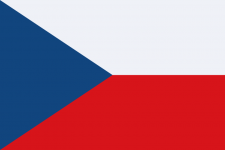
This report is based on a survey of displacement patterns, needs and intentions conducted by IOM as part of the Displacement Tracking Matrix (DTM) in 11 countries participating in the Regional Assistance Plan for Ukraine 2023. Between 1 January and 31 March, 2003 completed respondents' questionnaires were collected by a team of 5 interviewers deployed in 11 different regions of Czechia. The interviews were conducted in both Russian and Ukrainian.
Key findings
- The three main regions of origin of respondents are Kharkiv (14%), Donetsk (9%) and Dnipropetrovsk (8%).
- 52% of respondents declared an intention to move back to their place of origin in Ukraine (52%); 37% said they have no intention to move, and 1.7% said they plan to relocate to another country (commonly Poland, Germany or Canada).
- Upon returning to Ukraine, respondents said they would most likely need monetary support (22%), job placement support (19%) and housing support (16%).
- 33% of respondents are employed, 28% are unemployed and looking for work, 14% are working part-time, 3% are entrepreneurs, 2% are students or pupils, 7% are unemployed and not looking for work, 2% are on parental leave, and 10% are retired.
- The most common forms of assistance respondents have received in Czechia are: financial support (44%), accommodation (29%) and food supply (8%).
- Respondents cited financial problems (32%), discrimination (22%) and language problems (17%) as the three biggest inclusion challenges they face.
IOM Czechia - Q1 2023 DTM CZ
None
Details
- Authors
- International Organization for Migration, Czech Republic Office
- Geographic area
- Czech Republic
- Contributor type
- International organisation
- Original source
- Posted by
Asile
République tchèque
Primo-arrivants
Recherche ou rapport
Administration
Communauté
Logement
Travail
Inclusion
Ukraine response
Related links
Related content
Femmes migrantes victimes de violence: au Luxembourg et à l’étranger
Cette conférence offre l'occasion unique d’approfondir la compréhension de les expériences et de soutenir les droits des femmes migrantes. À travers
Familles et migration 2.0: Update de la thérapie familiale
L’Institut Luxembourgeois de Pensée Systémique & de Thérapie familiale (ILPS), en association avec la Société Luxembourgeoise de Psychiatrie
France : Semaine de l’intégration 2024
La direction générale des étrangers en France du ministère de l’Intérieur ainsi que ses partenaires organisent, du 14 au 18 octobre 2024, pour la
Les inégalités sociales et de santé : comparaison de gestion de la crise du COVID-19 à Bruxelles, Genève et Montréal
Le 3 octobre 2024, l’Université libre de Bruxelles accueillera l’événement international "Les inégalités sociales et de santé. Comparaison de gestion
Journée d’histoire belge des migrations
Le 25 septembre se tiendra aux Archives Générales du Royaume, la septième édition de la journée d’histoire belge des migrations. L’événement contribue
